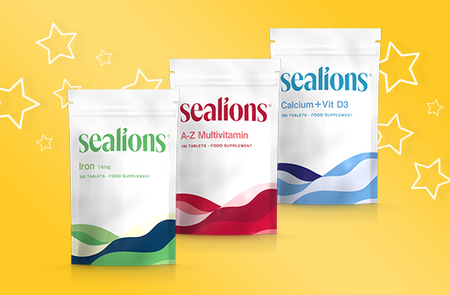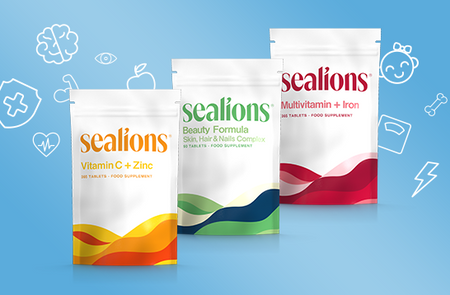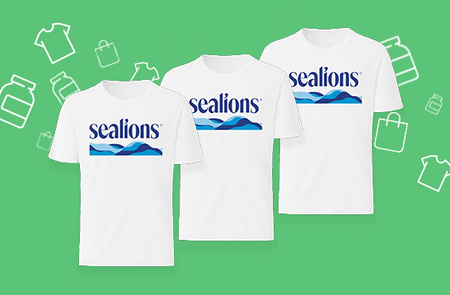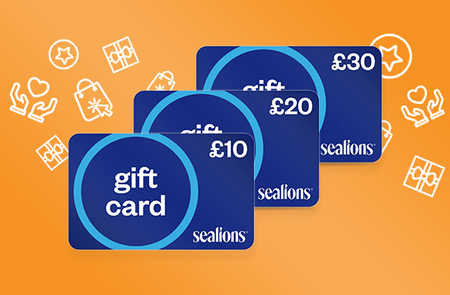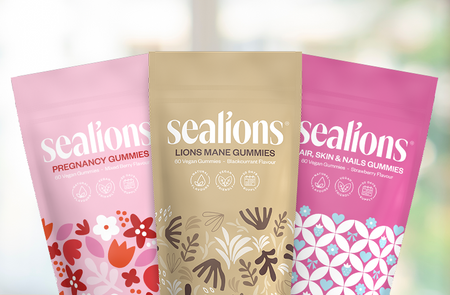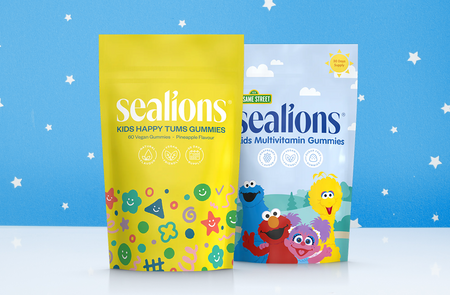
How to Get Thicker Hair: Top Tips For Thick and Voluminous Hair
We see it everywhere: glamorous people with thick and voluminous hair. Whether thumbing through magazines, watching TV, or scrolling through your Instagram feed, it seems everyone has perfect hair—except you.
You use volumising and thickening products but still can't get that elusive thickness. Thin hair lacking volume is a problem many people face, and the causes range from simple genetics to poor hair care.
If you want to get showstopper hair that stops people in their tracks (we're talking Monica Gellar's cousin Cassie here), stick around. We'll reveal our top hacks for transforming your dull and thin mane into flowing locks.
Thin and flat hair: What causes it?
Our hair is a vital part of our identity. From styles to colours, everyone wants to achieve their perfect look, and it's not just women. Research published by PBL Magazine reveals that 88% of men consider their hair a central part of their identity, and 48% feel self-conscious when their hair thins.
To treat thin hair and ensure it thickens, you'll first need to understand what causes it. There are multiple potential causes, and some are easier to fix than others.
Genetics
Genetics defines your hair colour, thickness level, and whether it's straight, wavy or curly. It also determines how many follicles you have, so some people deal with naturally thin hair.
While some people are more likely to have fine and flat hair, it doesn't mean they can't do anything about it, as choosing the right treatment can improve hair thickness.
Age
Age is a natural process that changes the body in many ways. Hair loss is no exception. Males tend to experience hair thinning as they get older, and there's always a risk of male pattern baldness. Due to hormonal changes, women can also experience thinning hair and a loss of volume during menopause.
Health
Your hair can say a lot about your overall health. Any nutritional deficiencies can create thinning, which reduces hair quality and causes shredding.
It's also vital to remember that chronic conditions, including androgenetic alopecia, scalp infections, thyroid disorders, and autoimmune diseases, can also impact hair. Treating the symptoms of these conditions is key to protecting and revitalising hair.
Poor hair care
Did you know that your daily actions play a major role in the health of your hair? Using the wrong hair products, excessive blow drying and regular chemical treatments can all damage hair.
Even rough brushing or towel drying can cause hair to thin, but a professional can advise on how to care for hair and ensure it stays healthy.
The foundations for healthy and thicker hair
So, now you know more about what causes fine hair, it's time to reveal some great ways to transform it into luscious locks. From hair growth products to supplements and general hair care, the following tips will make a massive difference.
Get regular haircuts
A lot of people avoid going to the salon until they're ready for a drastic change, but waiting too long could damage your hair. There's a reason it always looks great after a salon visit: the hairdresser cuts away split ends, which leads to a more voluminous look.
Even if you're happy with your current style, you should still trim your hair every six to twelve weeks. While this won't automatically thicken the hair, it will look better and have more volume.
Don't neglect your scalp
An unhealthy scalp can affect your hair. Excess oil or dry, flaky scalps are common concerns, but spending extra time caring for them can create a foundation for long and healthy hair to grow. Here's how to rejuvenate your scalp:
-
Exfoliate: Scalp exfoliator can remove dead skin and product buildup. It's basically the same as cleaning your face; regular exfoliation can breathe life into dull roots.
-
Massage Often: There's a reason hairdressers massage your scalp; it stimulates the hair follicles by increasing blood flow to promote growth.
-
Say No To Sulphate: Sulphate can strip your scalp of its natural oils, leading to dryness. Choosing sulphate-free shampoos gives your scalp an effective clean but will keep it healthy.
-
Skip Overwashing: Washing your hair daily might seem like a good idea, but it can cause more harm than good. Specialists recommend washing it every two to three days.
Know how to shampoo and condition your hair
It seems simple enough, right? You work the shampoo into a lather, rinse it, repeat, and smother your hair in conditioner. Unfortunately, a lot more goes into it. For example, if you're using a shampoo that doesn't suit your hair, it could cause more harm than good.
People with dry scalps should use nourishing shampoos sparingly, using a small amount to cleanse the scalp and roots. Use a shampoo that won't create excess oil if you have greasy hair.
When conditioning, ignore the roots and use small amounts on the middle hair shafts, down to the ends. Using volumising shampoos is also beneficial, as they give your roots some extra oomph.
Which supplements support hair health?
Failing to get your recommended daily intake of vitamins and minerals can impact your hair. Supplements can transform your hair if you have a deficiency or don't get enough nutrients through diet alone.
With so many to choose between, it's challenging to know which is best, but the following supplements are proven to boost hair health :
Vitamin A
Unhealthy hair is prone to breakages, but Vitamin A can stimulate growth by activating the cells. When you have more hair, it naturally seems thicker, but Vitamin A doesn't just stop there—it also increases shine.
You can find Vitamin A in a variety of foods, including:
- Leafy vegetables
- Eggs
- Cod liver oil
- Carrots
Vitamin B7 (Biotin)
Biotin - also known as Vitamin B7 - is an absolute powerhouse for hair. While there's limited research on the effects of B7 hair care specialists swear by it. You'll also find it in various shampoos, conditioners, and hair growth products.
Some studies suggest that biotin is most beneficial for people with deficiencies, as it can reduce inflammation and strengthen hair (NCBI).
Foods that contain biotin include:
- Eggs
- Nuts
- Legumes
- Leafy green
- vegetables
- Meat
Vitamin C
That's right; it's good old Vitamin C again. Abundant in antioxidants, there's nothing that Vitamin C can't do, and its ability to protect the body from free radical damage is good news for your hair.
Collagen is integral to stronger hair follicles, which stimulate hair growth, so adding Vitamin C supplements to your diet can lead to thicker locks. Free radicals can slow down hair growth, but Vitamin C shields your body against them (Research Gate).
These foods contain high levels of antioxidants:
- Citrus fruits
- Broccoli
- Strawberries
- Peppers
Vitamin E
Another antioxidant that gives your hair a helping hand is Vitamin E. The antioxidant can deliver nutrients to your hair follicles, which encourages growth. Vitamin E also traps moisture, which creates that elusive shine.
You'll notice that a lot of hair oils and other products contain Vitamin E as it can prevent hair loss. While it won't directly thicken the hair, losing fewer strands will prevent excess thinning.
Vitamin E foods include:
- Sunflower seeds
- Avocado
- Almonds
Iron
Iron ensures the red blood cells can carry oxygen to different body parts, including the scalp and head. Unfortunately, the body struggles to absorb iron, and deficiencies are common in plant-based diets. Low levels of essential nutrients mean your follicle cells can't stimulate growth.
If you don't get enough iron through diet, we recommend combining it with Vitamin C for optimal results. The antioxidant ensures your body retains iron and enjoys its many health benefits.
Foods that are high in iron include:
- Baked beans
- Brown rice
- Spinach
- Tofu
- Chickpeas
- Seeds
- Nuts
- Meat
Zinc
If you have a zinc deficiency, your hair will suffer. Similarly to other minerals, zinc can slow down hair growth and moisturise the scalp by producing sebum. Zinc is also ideal for regulating hormones, and individuals with a deficiency can experience ongoing benefits.
If you don't get enough zinc through your diet, it's best to either use a supplement or introduce the following foods:
- Pumpkin seeds
- Spinach
- Lentils
Hair, Skin & Nail Supplements
One of the best ways to promote thicker and healthier hair is to take a supplement that combines multiple vitamins and minerals into one convenient dose. Hair, Skin & Nails Gummies are like multivitamins for hair because they're formulated for optimal benefits.
With a combination of 12 vitamins and minerals, these supplements are ideal for promoting growth and strengthening your strands. Biotin helps fine hair by giving it extra strength, while Vitamins A, C, D, and E contribute their unique benefits.
Zinc also plays a starring role, allowing you to save money by combining multiple ingredients and enjoy a convenient supplement.
The best ways to maintain your hair
Once you've got to grips with the basics and the supplements work their magic, it's time to take care of your new thick hair. By staying on track with a proper hair care routine, you can continue to promote hair growth and look forward to stronger strands.
Rethink your go-to products
Are your haircare products helping or hindering its thickness? Heavy treatments, like deep conditioners and leave-in hair masks, can be beneficial for adding moisture, but they can also weigh the hair down, making it appear thinner.
Opting for volumising mousse and texturising mists can increase hair thickness and add volume. Remember, a little goes a long way - so avoid smothering your hair in products.
Keep it cool
That hairdryer might seem like your best friend, but using it too often can dry your hair. The same goes for straighteners and curling irons. So, whenever possible, let your hair dry naturally or use a lower heat setting to prevent damage.
If you use straighteners regularly, use a protection spray to prevent it from burning hair strands.
Try a new style
Don't underestimate the power of a new hairstyle for some extra lift. Adding some layers can work wonders for your tresses and add more texture because it lightens the hair. Styling your part differently or opting for wavy hairstyles have similar effects.
The bottom line
Thick and healthy hair is something we all long for, and it doesn't have to be a distant dream. By caring for your scalp and ensuring your body receives optimal nutrients, you've laid the foundations for thicker hair.
Once your hair starts to improve, use products that boost hair volume while protecting your locks. Remember, the right hair care routine for someone else might not suit you, so think about whether your hair is more on the dry or greasy side and buy suitable products.
If you're looking for high-quality supplements, Sealions offers affordable vitamins and minerals that boost hair health. Please try our Hair, Skin & Nails Gummies.
Tagged:

